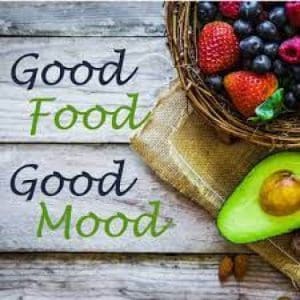
Food and Mood: Exploring the Connection Between Nutrition and Mental Health
$45.00
There is a wealth of evidence showing that what we eat impacts our emotional health. In this training, we will explore that connection, as well as the implications of our gut being our second brain. We will examine studies that have linked nutrition with various mental health symptoms in order that we become more informed in the psychoeducation that we can pass along to our clients. After all, learning about what our clients are regularly eating and drinking can help us – and them – find clues regarding the underlying causes of their emotional distress and how they might improve their well-being.
Upon completion of this training, participants will be able to:
- Discuss the impact of nutrition on mental health
- Understand the connection between mental health and gut issues
- Understand the influence of the gut on emotional well-being
- Review clinical studies that have found connections between different nutrients and improved mental health
- Provide clients with psychoeducational tools related to nutrition and mental health
Social workers completing this course receive 3 Clinical asynchronous continuing education credits.
For other board approvals, this course qualifies for 3 hours of Clinical, Evidence-Based Practices, and General Skill Building continuing education training.
Course Instructor: Dreya Blume, MA, LCSW
Recording Date: 5/25/2024
Recorded Live Webinar with downloadable presentation slides and/or handouts, evaluation, and a required quiz. The learner is required to pass with a 70% or higher to achieve the CE certificate of completion. The learner is able to reset the test until a satisfactory score is achieved. CE Training Workshops, LLC, provider #1770, is approved as an ACE provider to offer social work continuing education by the Association of Social Work Boards (ASWB) Approved Continuing Education (ACE) program. Regulatory boards are the final authority on courses accepted for continuing education credit. ACE provider approval period: 8/2/2022 – 8/2/2025. CE Training Workshops, LLC has been approved by NBCC as an Approved Continuing Education Provider, ACEP No. 7091. Programs that do not qualify for NBCC credit are clearly identified. CE Training Workshops, LLC is solely responsible for all aspects of the programs. System Requirements: Firefox, Chrome, Brave, Safari, Edge on any modern operating system (Windows, MacOS, Linux, Android, iOS). A desktop browser is recommended. We do not provide support resources for issues encountered using a mobile device. For more information about our policies and board approval statements, please visit our FAQS page.
Dreya Blume, MA, LCSW is a licensed clinical social worker, with her MSW from Radford University and an MA in anthropology from the University of Hawaii. Dreya has twenty years of experience working in mental health, from case management to intensive in-home services to leading groups for addicts in recovery.
Food and Mood: Exploring the Connection Between Nutrition and Mental Health (3 HR) Syllabus
I. Nutrition and Mental Health Overview
- Define the link between diet and mental health outcomes
- Understand limitations of pharmaceutical interventions for mood disorders
- Discuss the potential for nutritional approaches to support emotional wellness
II. Gut-Brain Connection
- Explore the role of the gut microbiome in emotional regulation
- Review benefits of probiotics and prebiotics in gut and mood health
- Identify foods that support gut health such as fermented foods and high-fiber produce
- Discuss foods that harm gut health including processed foods, excessive sugar, and alcohol
III. Metabolic and Mitochondrial Health
- Review the role of mitochondria in energy production and brain function
- Understand Dr. Chris Palmer’s metabolic model of mental illness
- Identify foods and habits that support metabolic efficiency
IV. Water and Hydration’s Role in Mood
- Highlight studies linking hydration with lower depression and anxiety rates
- Review cognitive benefits of adequate water intake in children and adults
- Explore hydration strategies for improved energy and emotional regulation
V. Omega-3 Fatty Acids and Brain Function
- Explain the role of omega-3s in brain and nervous system health
- Identify mental health conditions improved by omega-3 intake including depression, anxiety, and ADHD
- List food sources of omega-3s including fish, seeds, and grass-fed animal products
VI. Amino Acids and Neurotransmitter Balance
- Discuss symptoms and support strategies for low GABA, serotonin, catecholamines, and endorphins
- Introduce amino acids like tryptophan, tyrosine, and glutamine for mood support
- Highlight signs of neurotransmitter imbalances and their food-based solutions
VII. Blood Sugar and Mood Regulation
- Understand symptoms of low blood sugar and its link to irritability and fatigue
- Explore the role of balanced meals and protein timing in mood stabilization
- Review foods and patterns that support consistent blood sugar levels
VIII. Sugar Sensitivity and Addiction
- Explore Dr. Kathleen DesMaisons’ model of sugar sensitivity
- Understand how sugar impacts neurotransmitters and addictive behaviors
- Review steps from “Potatoes Not Prozac” to regulate mood and cravings
IX. Micronutrient Deficiencies and Mental Health
- Identify vitamins and minerals associated with depression and anxiety including B vitamins, magnesium, and zinc
- Understand the nutrient-depleting effects of medications such as birth control
- Recommend nutritional testing and physician collaboration when deficiencies are suspected
X. Clinical Tools and Client Education
- Use food diaries to track mood and nutrition patterns
- Conduct exploratory interviews around emotional and cultural food influences
- Support clients in identifying triggers, emotional eating patterns, and body image concerns
- Offer psychoeducation on mindful eating, hydration, and nutrient-dense meal planning


